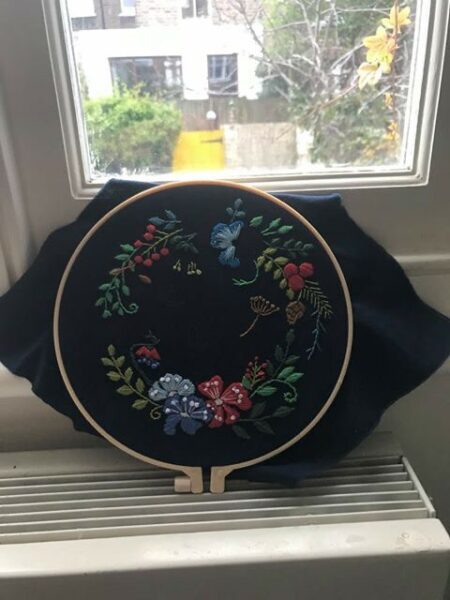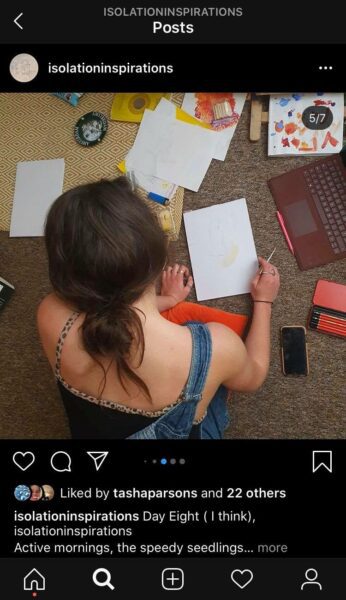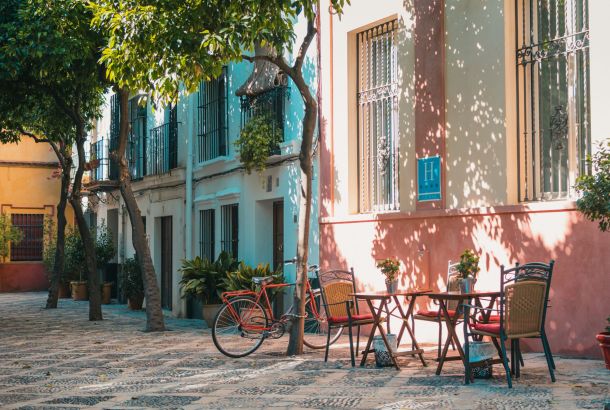What does routine mean during this unusual time?

It was only in the last year that I learnt the importance of routine, the importance of structure to the everyday. Although, routine was physically beneficial for me, it also made me feel mentally active. So, what came with the outbreak of coronavirus was feelings of uncertainty.
However, what I didn’t understand was that routine did not actually have to mean leaving the house, routine just means a plan and where that takes place does not matter. With the hours of free time we have gained from lockdowns, comes the opportunity to spend our time doing things we wouldn’t usually do, whether that means picking up a new hobby or simply continuing with an old one.
I spoke to some second year students from the University of Manchester, who have been implementing routines or exploring hobbies during this quarantine. From cooking to embroidery, I wanted to talk to other people about how they have been keeping busy.
History student Ivy Rogers and her house found out they had been in contact with the virus in the early stages of it’s outbreak, speaking to her she felt “it was a bit crazy going into strict isolation, so we were all keen to make it fun.”

The group of housemates shared a range of posts on their social media accounts about their situation. “We decided to do all these childish things such as drawing each other, baking the perfect chocolate chip cookie and embroidery,” Ivy explained.
She advised for people to take isolation as an “opportunity” but also to “not feel guilty if you don’t’ master a language in this time, just think of it as the world on pause.”
When speaking to PPE student Tyler Bennington Poulter, he told me about the punch bag he made out of scratch from a few objects lying around: “When I realised I was going to have to spend this much time inside away from the usual things that give my life structure, I knew I needed to occupy my mind with some projects and keep physically active.”
By having something practical to focus his attention on, Tyler said that he was able to “resist the temptation to just stay in bed.” For him, the period should be seen as a positive opportunity to get into good habits and “improve my well-being over this time and come back stronger then I was before.”

Social anthropology student Robyn Ellis has used Instagram as a diary which she welcomes her followers to see. Despite not using the app before she expressed that she chose to “create [an account] because of the COVID-19 lockdowns.” Her posts vary from “delicious culinary creations to poetry readings about nothing-ness.”
Although the time can feel isolating and unusual, Robyn suggests to take “the routine reduction as a gift of time, make the most of it and share what you create.”
Kit Delamain who studies philosophy has left his followers watering at the mouth with his yummy isolation creations, which he shares on his Instagram. While cooking wasn’t necessarily something he started in lockdown he said, “Before I was cooking to eat, but now I am cooking to cook.” He says that he has chosen to build his life around “the meals that I want and make.”
For Kit, cooking is a form of meditation: “I am able to invest my concentration into making something delicious.” When asking him for advice for people who want to get into cooking in this time, he suggested “picking out your favourite things to eat, and having a go making them on your own, with all the daring creativity you can muster; you have absolutely nothing to lose.”
For me, trying to keep a positive mindset is key right now but, where some days this may not be possible, it is important not to be hard on yourself. Not every day will be productive and that’s okay. It helps to be flexible and take things day by day. It’s also helpful to try not to compare your routine with someone else’s.
This is a very unique time, I think it is also important to see the benefits and the possibilities of what we can make of it. Stay positive where you can, stay connected and above all stay safe.







